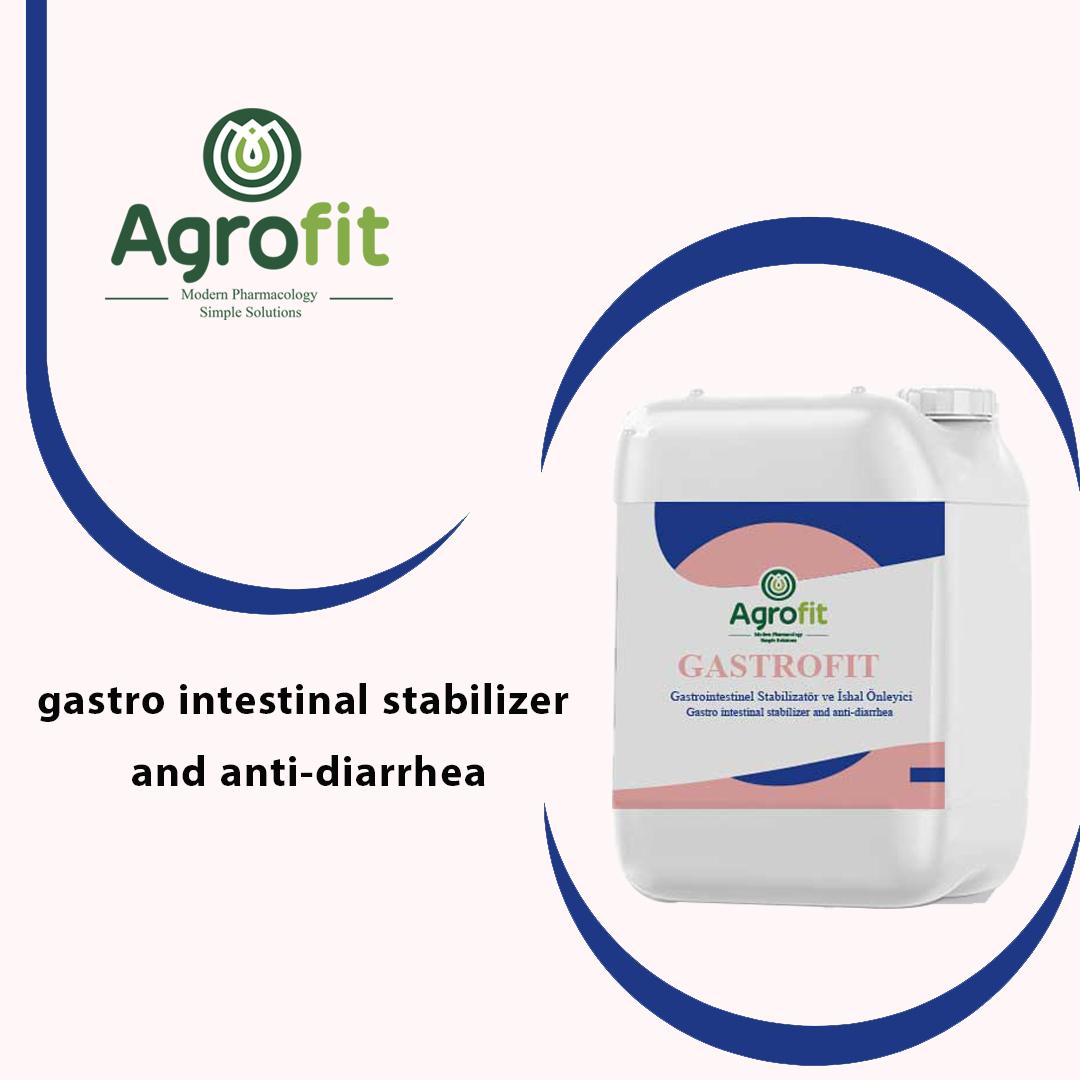
Gastro intestinal stabilizer and anti-diarrhea
Diarrhea is one of the most common conditions to affect poultry. There are a number of possible causes for diarrhea in poultry.
Poultry Diarrhea Causes:
- •Antibiotics
- •Too much Protein
- •Bacteria
- •Viruses
- •Coccidiosis
- •Worms
- •Heat stress
Problems:
- •Destruction of the intestinal mucosa
- •Disruption to the normal intestinal flora
- •Vitamin deficiency
- •Acidose
Solution:
- •The damaged tissue of the intestine needs to be repaired.
- •By preventing the growth of harmful bacteria in intestinal, the growth of the beneficial intestinal bacteria would be enhanced.
- •Providing the appropriate pH for improving the growth conditions of intestinal bacteria.
- •Adding electrolytes, vitamins and minerals
Supplement composition:
B group vitamins
Gut microbiome of poultry serve as a vitamin (especially B vitamins) supplier to its host.
Thiamin (Vitamin B1):
Thiamine is the water-soluble vitamin to be discovered. Thiamine functions as a coenzyme in the release of energy from carbohydrates.
Disease conditions result in increased thiamin requirements and its levels found were directly correlated to infection severity. Likewise, conditions such as diarrhea and malabsorption increase the requirement.
Riboflavin (Vitamin B2):
Riboflavin (Vitamin B2) is a water-soluble and heat-stable vitamin that the body uses to metabolize fats, protein, and carbohydrates into glucose for energy. With a healthy digestive system, the body can absorb most of the nutrients from the diet, so it is important to get most of the riboflavin from dietary sources. Signs of riboflavin deficiency are growth retardation, diarrhea after 8 to 10 days, and high mortality after about three weeks. When chicks are fed a diet deficient in riboflavin, their appetite is fairly good but they grow very slowly and become weak and emaciated.
Vitamin B12:
The origin of vitamin B12 in nature appears to be microbial synthesis. It is synthesized by many bacteria. Poultry obtain some vitamin B12 by direct absorption of the vitamin produced by bacterial synthesis in the intestine.
The fact that poor intestinal health is one of the main causes of vitamin B12 deficiency, As intestinal health gets worse, the absorption capacity of nutrients decreases, which in turn has a negative effect on intestinal health. This makes the intestinal flora vulnerable to overgrowth with pathogenic bacteria or fungi, which in turn further destroys the flora and further impairs the uptake of nutrients. A good supply of B12 is vital for the preservation and regeneration of the mucous membranes, which is why the vitamin is critical for regaining intestinal health, and for chicks have gastrointestinal problems, vitamin B12 supplements are urgently recommended.
Vitamin C:
It acts as an antioxidant to neutralize free radicals and reduce the risk of inflammation and disease. Vitamin C holds powerful antioxidant properties. Antioxidants are compounds that play a central role in health and disease. An antioxidant, vitamin C might help protect your cells against the effects of free radicals, minimizing oxidative stress and damage the cells. Studies show that antioxidants may also aid in the treatment and prevention of multiple chronic conditions. One of the most well-known benefits of vitamin C is its ability to improve immune health. Studies have repeatedly confirmed the immune-boosting benefits of vitamin C. Plus, vitamin C may also help decrease the incidence of other conditions like pneumonia, malaria and diarrhea as well. Diets rich in Vitamin C has the ability to reduce oxidative damage to the gastric mucosa.
Lactic acid:
Lactic acid have demonstrated the capability to enhance poultry performance by altering the pH of the gastrointestinal tract (GIT) and consequently changing the composition of the microbiome. In addition, Lactic acid is further provided to poultry by the ability of organic acids to potentially improve the physiology and anatomical structure of the intestinal cell wall, enhancement of immunological functions in the GIT, and the increased resistance to enteropathogenic bacteria activity.
Short Chain Fatty Acids monoglycerides:
Short Chain Fatty Acids monoglycerides through bacteria wall and destroys membrane due to its compatibility with hydrophilic and lipophilic membranes walls. It’s active in the stomach at low pH, and able to by-pass the stomach keeping efficacy. It has several affection on poultry health including: effect on Villus growth, Reparation of lesions in gut mucosa, Stimulation of tight junctions expression and gut integrity, Improve FCR, Increase of the intestinal surface and Increase of the crypt depth in colon.
Electrolyte mineral for diarrhea:
The primary role of electrolytes is in the maintenance of body ionic and water balance.
During stress and diarrhea, the bird’s electrolyte balance gets altered. The appropriate mineral supplement including sodium, Chlorine, Potassium and Magnesium helps replenish the loss of electrolytes when the birds suffer from heat stress and /or dehydration. There is currently an understanding of the need to achieve a balance between action and anion supply.
Electrolyte balance can therefore more correctly be described as the changes that necessarily occur in the body processes to achieve normal pH. In extreme situations, such modifications in regulatory mechanisms seem to adversely affect other physiologic systems, and they produce or accentuate potentially debilitating conditions.
Gastrofit
Gastrofit is a complementary feed which is used for gastro intestinal stabilizer and also used as anti-diarrhea
